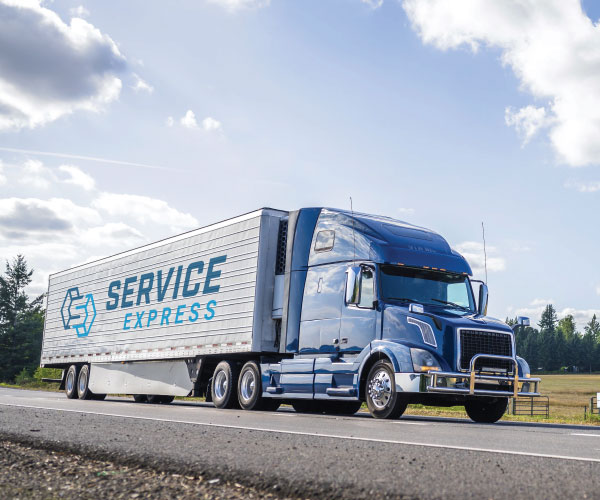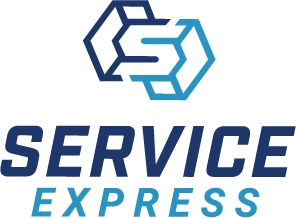When moving freight, the transportation method you use impacts several areas of your business – transportation costs, delivery speed, and customer satisfaction. Most companies will use a combination of less than truckload (LTL) and full truckload (FTL) shipments throughout the year, depending on your needs.
This article will educate you on the difference between LTL and FTL freight, what you need to know about each transportation option, and the best times to use it. You’ll also learn the value of working with Service Express, a reputable logistics service provider that can help handle all your transportation and logistics needs.
What is FTL Freight?
You’ll use full truckload freight for large shipments that will fill the entire space of the trailer. One main benefit of FTL is that your product is the only item on the truck. This knowledge helps to give you peace of mind that your goods aren’t mixed with other products and that the driver is dedicated to your delivery.
Below is a detailed examination of what you can expect with your FTL shipments.
Shipment Process: Your shipment is picked up and directly transported to its destination.
Overall Cost: The cost depends on several factors:
- Delivery speed
- Freight class (unlike LTL shipments, if this is slightly different from the actual shipment, it won’t impact the price)
- Freight origin and destination
- Shipment date
- Truck capacity
- Trucking lanes
Transit Times: Your freight will be delivered sooner than LTL freight since the only stops will be for fuel or rest breaks.
Available Services: When you work with an FTL shipping company, like Service Express, you’ll have access to local and regional deliveries with these services.
- Dedicated fleet
- Expected deliveries
- Pickup and delivery
- Over-the-road shipments
- Same day trucking
- Specialized trucks and services
What is LTL Freight?
You’ll use LTL freight for shipments that aren’t large enough to fill a trailer, so it’ll share the truck space with other companies. Additionally, it works best for freight that doesn’t include time-sensitive deliveries. A prime benefit of LTL shipping is that you pay for what you need, unlike with FTL, where you pay for the entire trailer whether or not you fill it.
Below is a detailed examination of what you can expect with your LTL shipments.
Shipment Process: The LTL driver will stop at several different terminals to pick up or drop off other pallets. Your shipment may switch trucks throughout the process depending on its destination. Therefore, your transit times can increase since your product moves more often than FTL shipments.
Overall Cost: Your shipment’s freight class significantly impacts your overall cost. The class is determined by reviewing the freight’s density (weight and size), liability (perishable or fragile items) if special handling or accommodations are needed, and storage ability.
Your overall LTL costs include:
- Freight class (must be exact, or your cost could increase from the initial quote)
- Commodity
- Special services used
- Transportation difficulty
- Trucking lanes
Transit Times: The estimated time and arrival time may differ from when you schedule your shipment. Working with a dependable shipping company will keep you informed on the delivery schedule with any changes or delays that might occur.
Available Services: When you work with Service Express you’ll have access to local and regional deliveries with these special services.
- 26′ liftgate
- 53′ liftgate
- Pallet jacks
- Business deliveries
- Palletized freight options
- On-demand trucking
The Best Times to Use LTL and FTL Freight Shipments
Now that you have a detailed understanding of LTL and FTL freight shipments, here are some ways you can quickly determine which option is the best for your shipments.
FTL shipments work well for:
- 10+ pallets
- High shipment weight (over 15,000 pounds)
- Fragile or sensitive products that need specialized equipment (refrigeration, temperature controlled)
- Strict pickup and delivery times
- Expedited shipments
LTL shipments work well for:
- 1-9 pallets and are less than 14 feet in size
- Weight is between 150-15,000 pounds
- Sturdy products
- Flexible pickup and delivery times
- Saving money on overall transportation costs
You’ll Have Peace of Mind Thanks to the Service Express Commitment
Whether you choose LTL or FTL freight options, every Service Express customer receives the highest levels of integrity, ethics, and truthfulness from our team. Contact us using our online form or calling (410) 320-3869 to learn more about how we can exceed your transportation goals in 2022!


